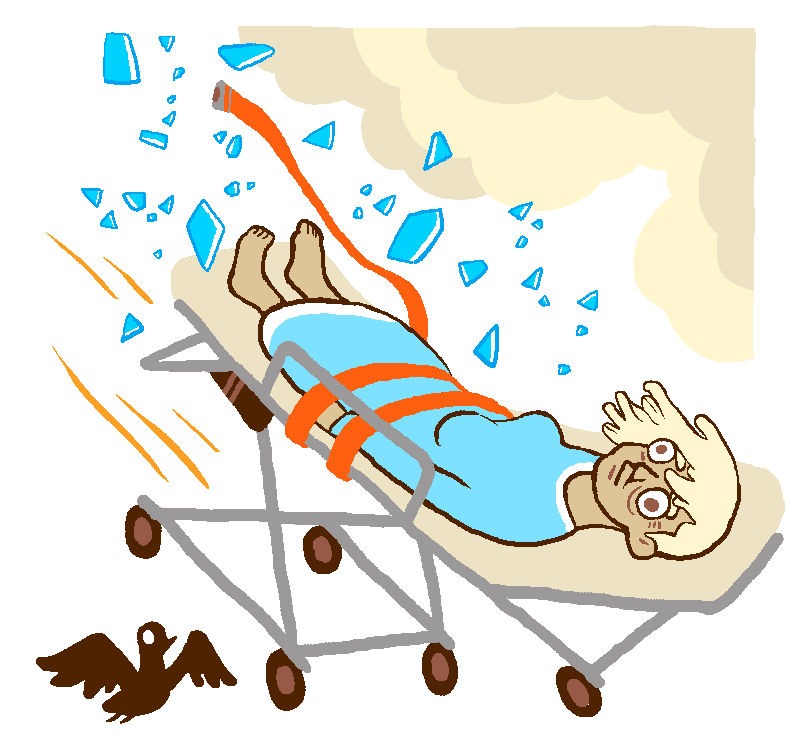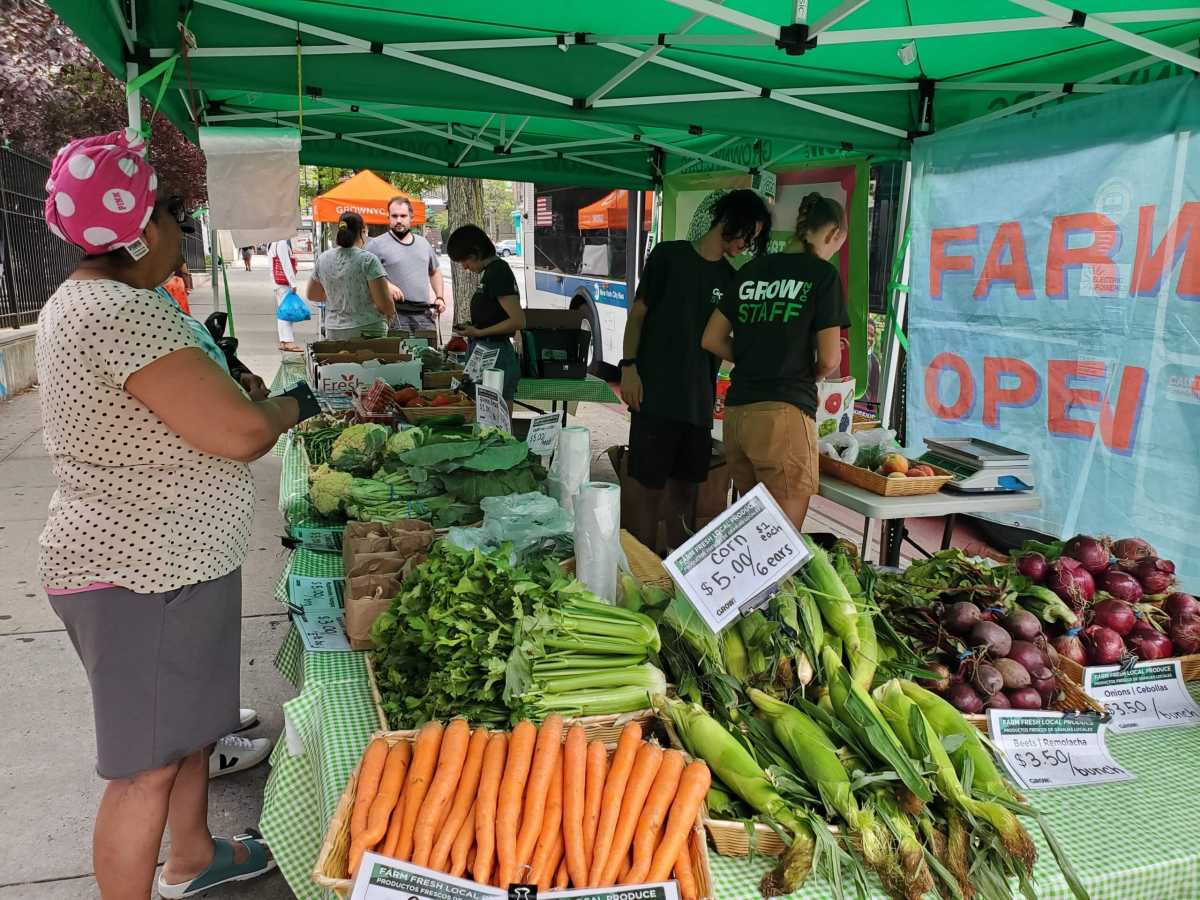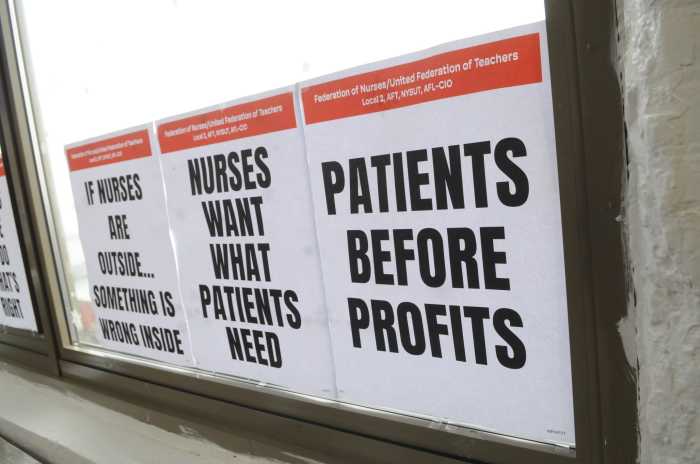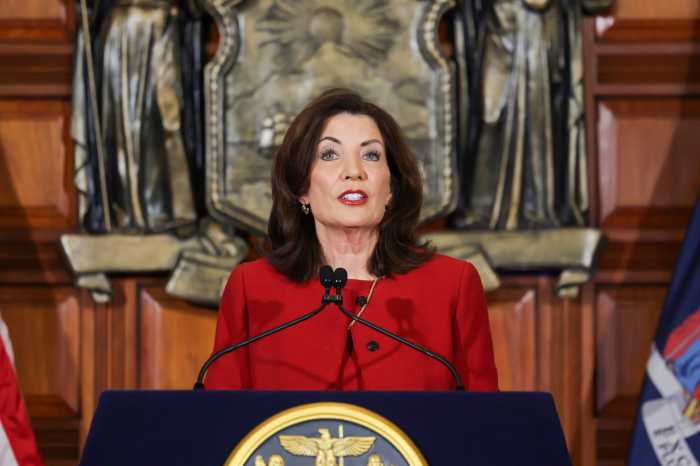Grocery shopping is now less of a hassle for Crown Heights residents.
GrowNYC, a non profit focused on linking local agricultures with low income communities to provide them with quality produce, is operating a popup farmstand every Friday, in the middle of what used to be a food-desert.
In 2021, a void was created in the middle of the neighborhood when the Associated Supermarket on Nostrand Avenue shut its doors, leaving locals to shop at delis and less affordable convenient stores. Many, including seniors, had to commute to get to the closest supermarket.
Doreen Douglas, 66, was left with no option but to catch a bus that would take her 10 blocks away from her apartment, to get to Food Town on Franklin Avenue. where food prices surpassed her budget.
“Taking the bus carrying all of that was difficult enough,” said Douglas. “But I also needed that money for other stuff and I will happily support farmers over supermarkets.”
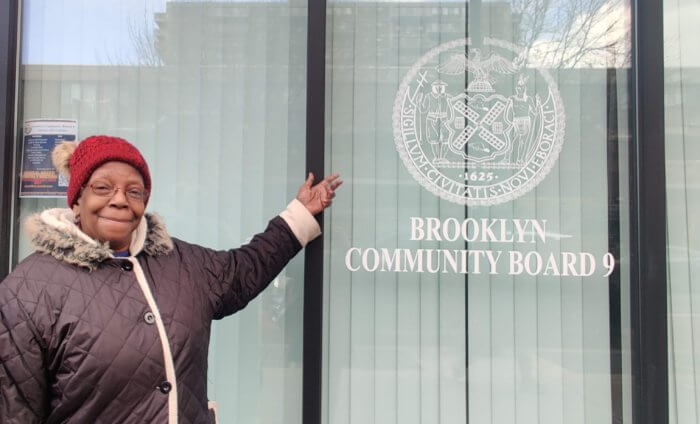
Doreen Douglas stands outside the Community Board 9 office to share her experience at the farmstand, where members of GrowNYC provided her with information about Medicare as she took care of her grocery shopping. Photo by Ximena Del Cerro
Douglas considered other farmers markets, like the one at sets up at Grand Army Plaza on Saturdays, but that was also far from her. Community members grew concerned and contacted GrowNYC to help.
“Food tastes definitely fresher than anything you can buy at these delis,” Douglas said. At the stand she buys anything from fresh vegetables, eggs and pantry items such as pasta and even honey comb. “I used to come every week because I can afford it, but that’s too much food for me.”
Nearly 1.1 million NYC residents, 12.5 percent of the city’s population, are food insecure according to a 2021 report by the Food Bank NYC non profit organization.
Meanwhile, the state of New York looses a farm every three days on average.
“Limited access to healthy food options is a major problem in our community,” said Dante B. Arnwine, district manager of Brooklyn community board 9, in an email. “The proliferation of food deserts in communities, especially communities of color, has drawn attention to this citywide issue. Local leaders saw the gap in service and worked quickly to mitigate the loss of the Associate Supermarket. We must continue to support organizations like GrowNYC that are focused food access and invest in space and policy to fortify services for residents.”
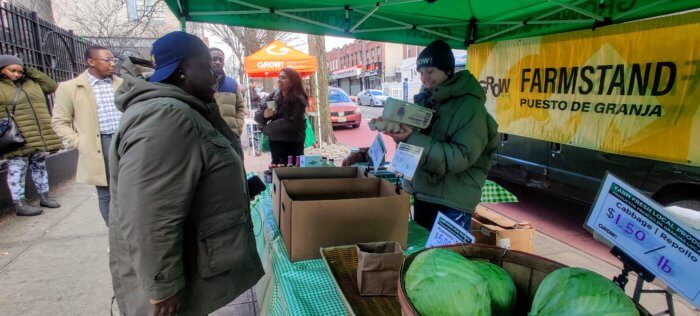
GrowNYC brings products from local farmers into the city and distribute them to low income communities. That way, the organization supports local sustainability and introduces more fresh and healthy produce among neighbors that cant always afford them.
60 percent of costumers use a subsidy program like SNAP, WIC, or OTC cards to do their food shopping.
“We want farmers to keep farming,” said Winnie Lee, farmstand field manager at GrowNYC. “We want to be the link of supermarkets and restaurants for fresh food.”
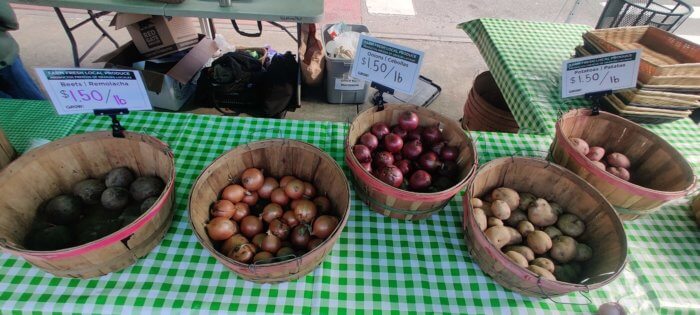
The stand opens on Fridays from 9 am to 2 pm. It is operated by paid staff and youth enrolled in the organization’s workforce development program.
During the winter, about 65 neighbors stop by to buy their groceries, but in the summer, that numbers increases to about 200. GrowNYC donates food left unsold at the end of the day to a local church.
At the moment, the stand is running on deficit. The organization plans to apply for grants to keep going.
Correction 2/7/23: This article previously stated the stan was operated by volunteers.


